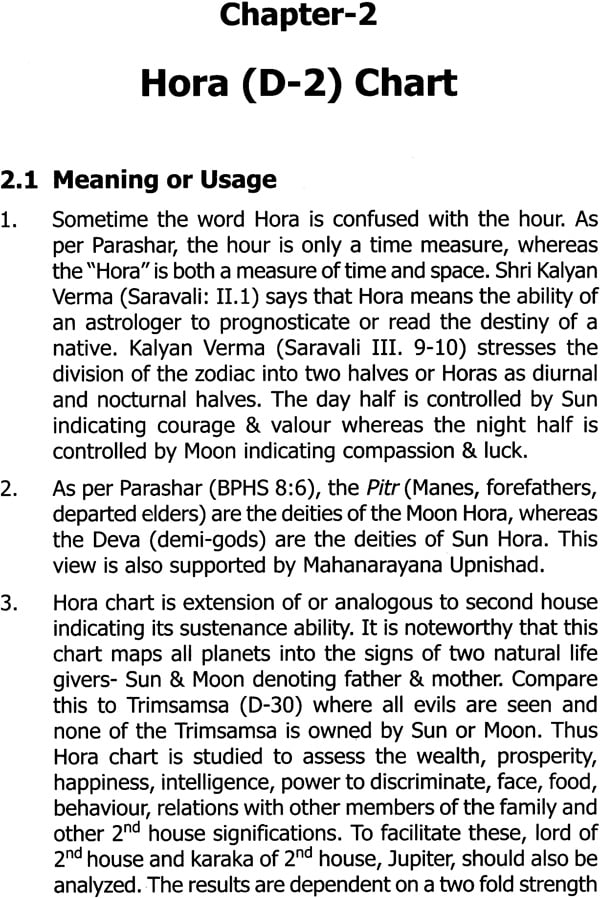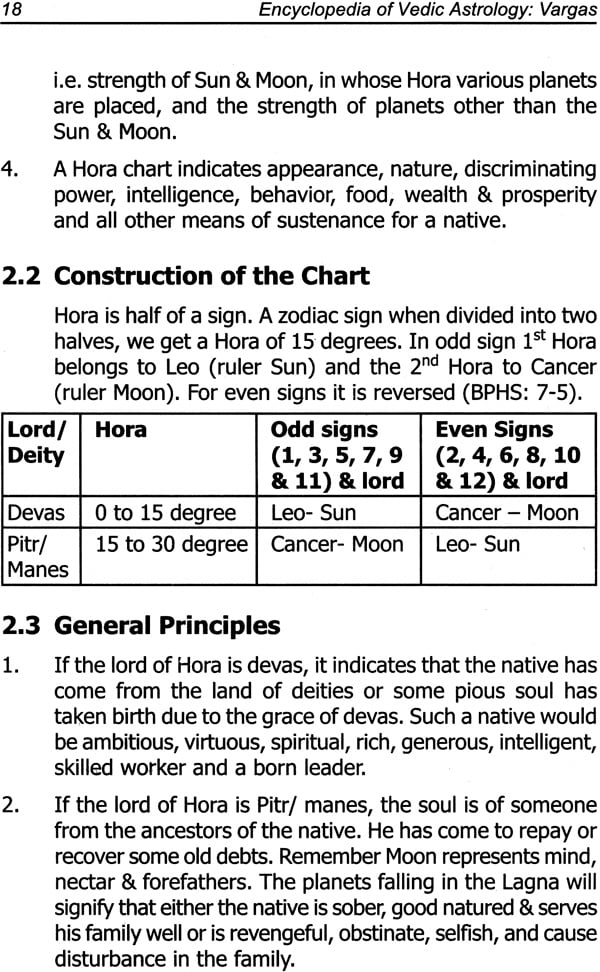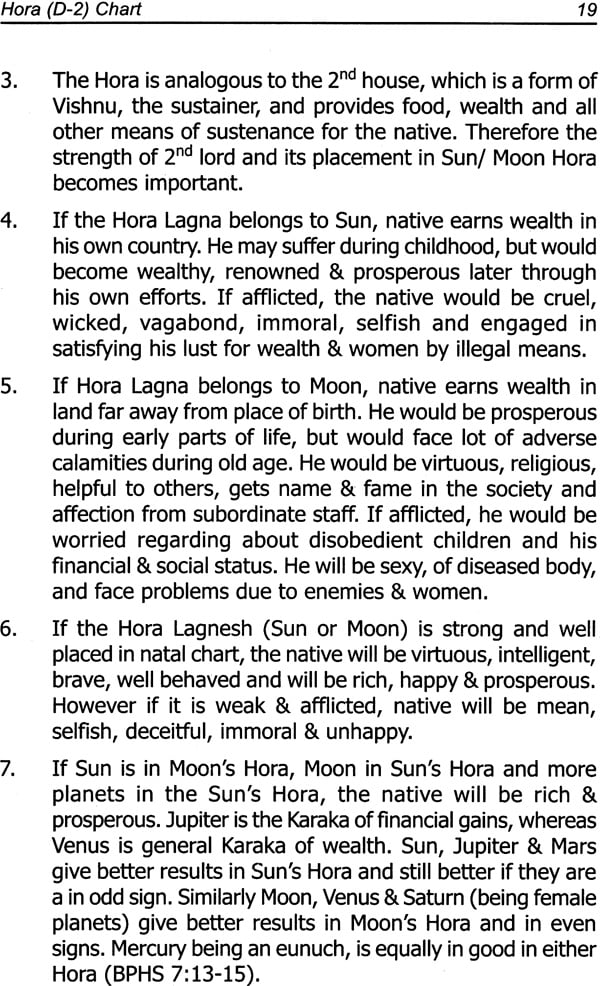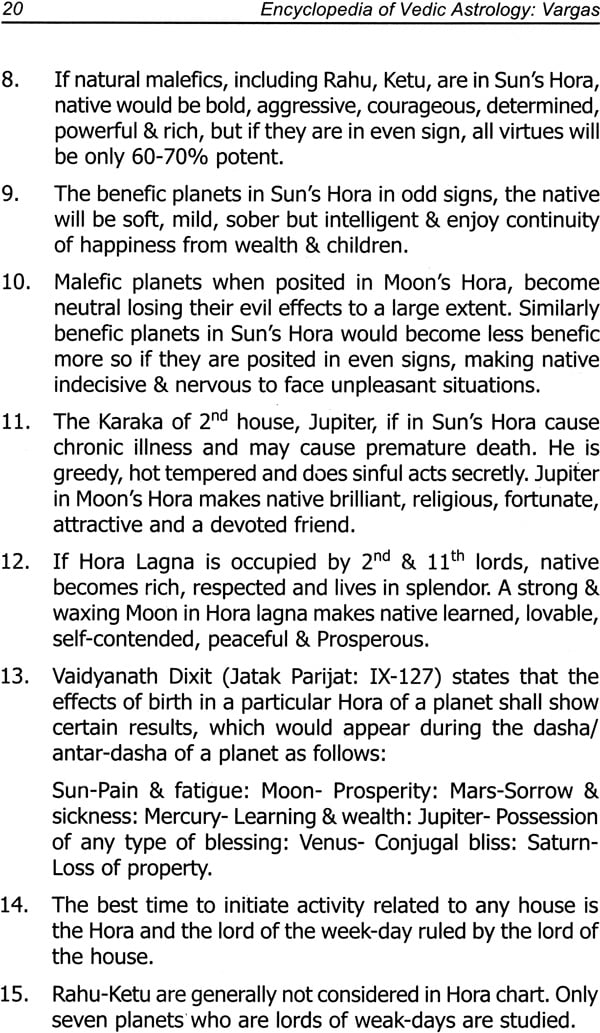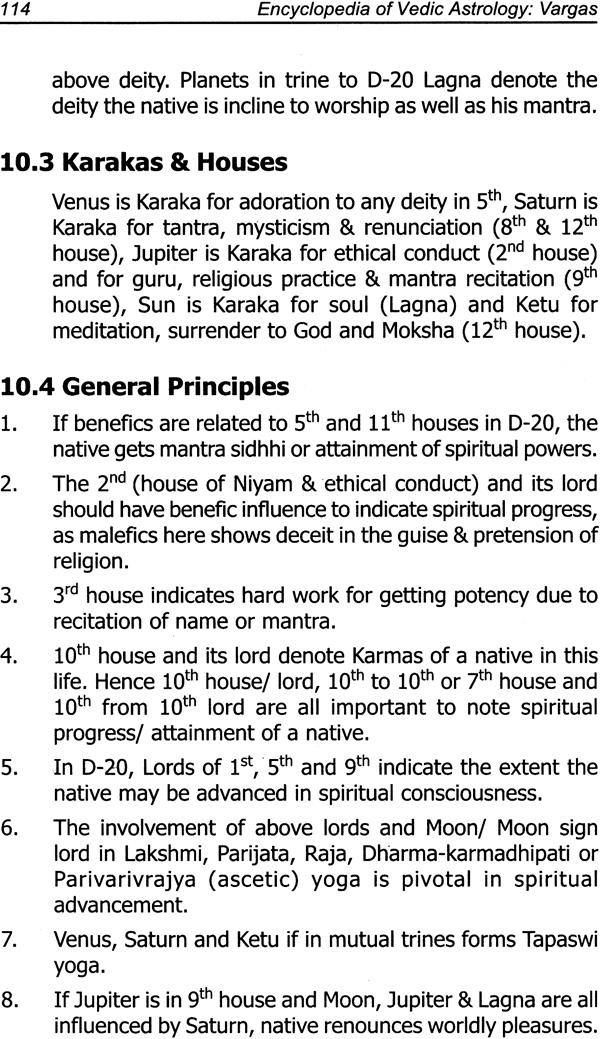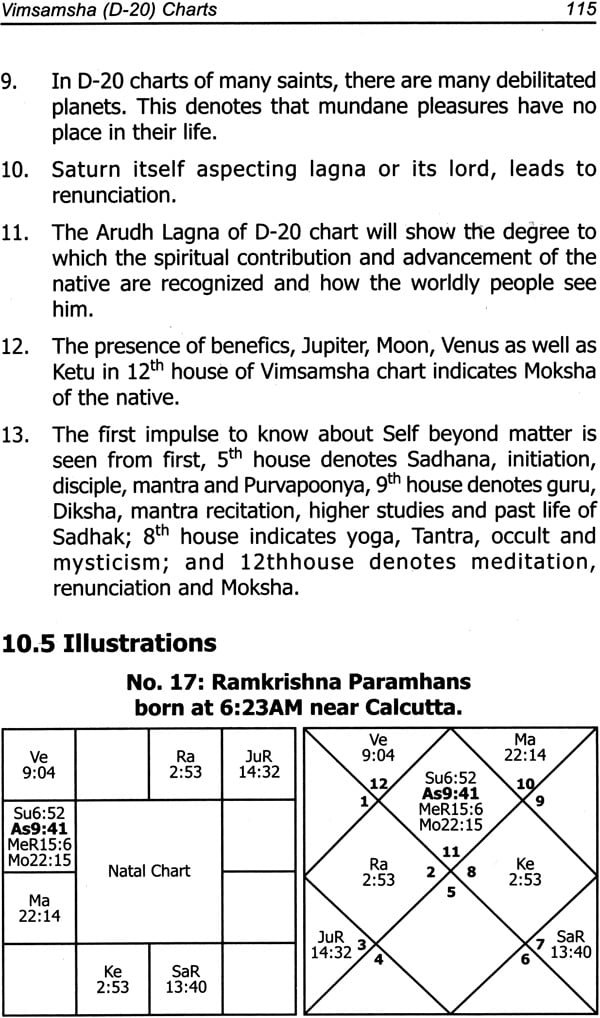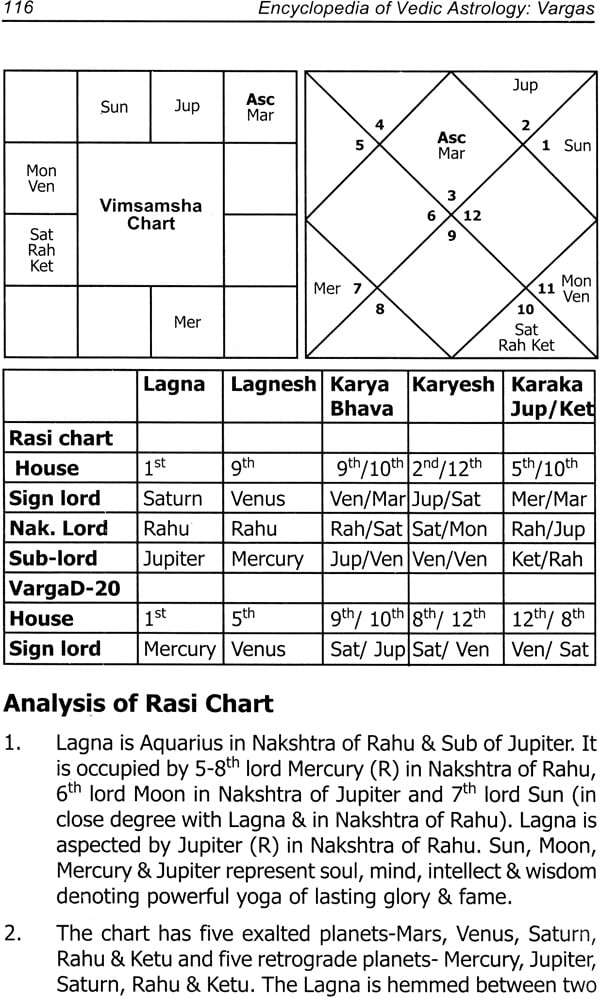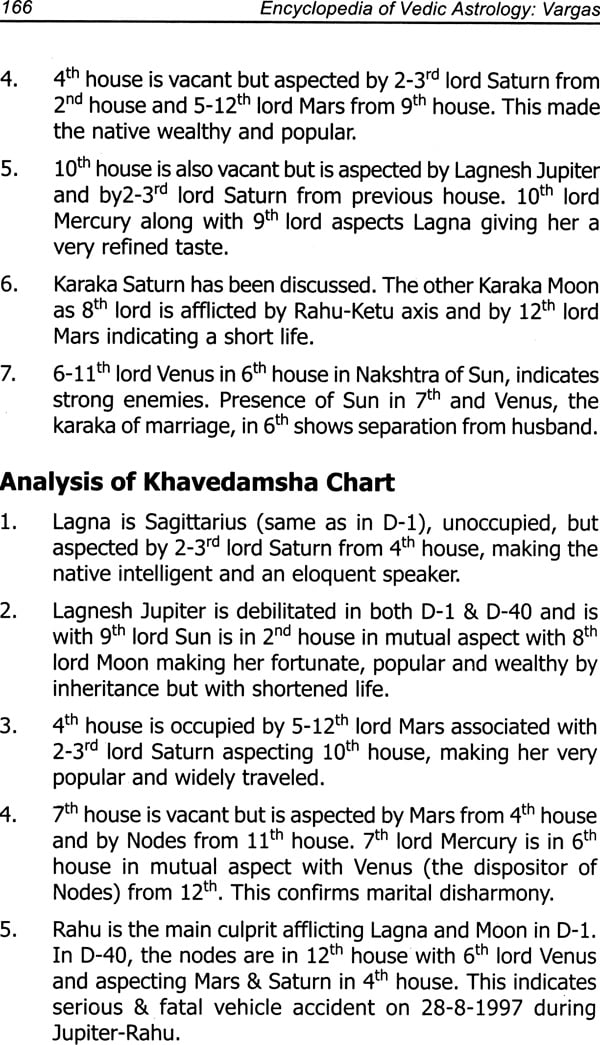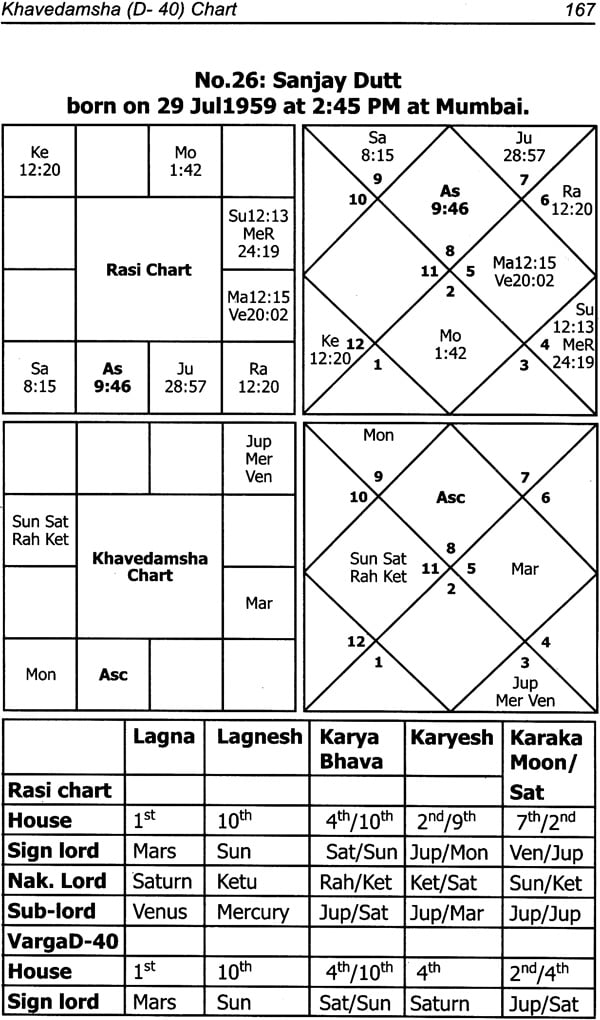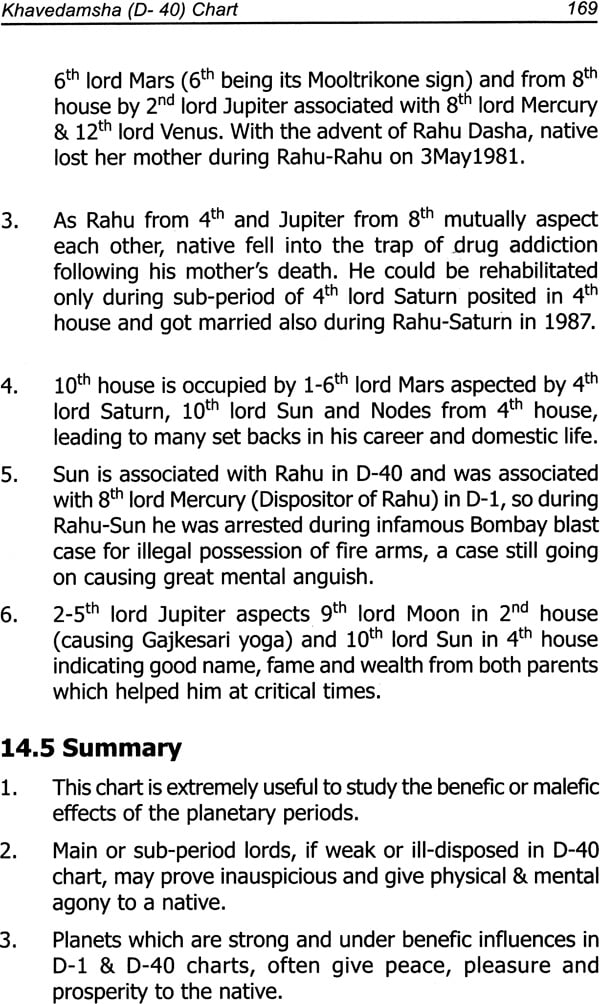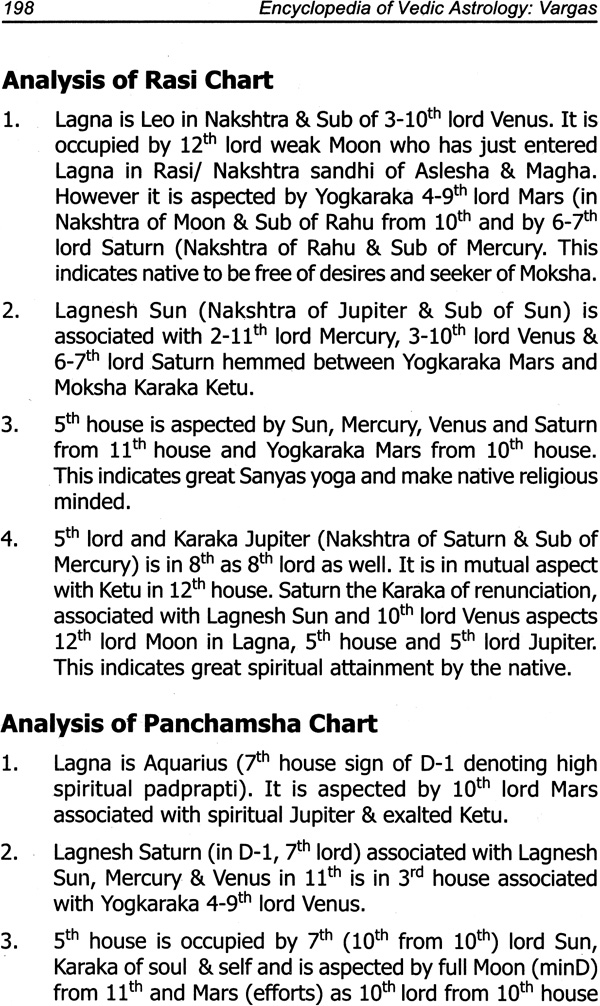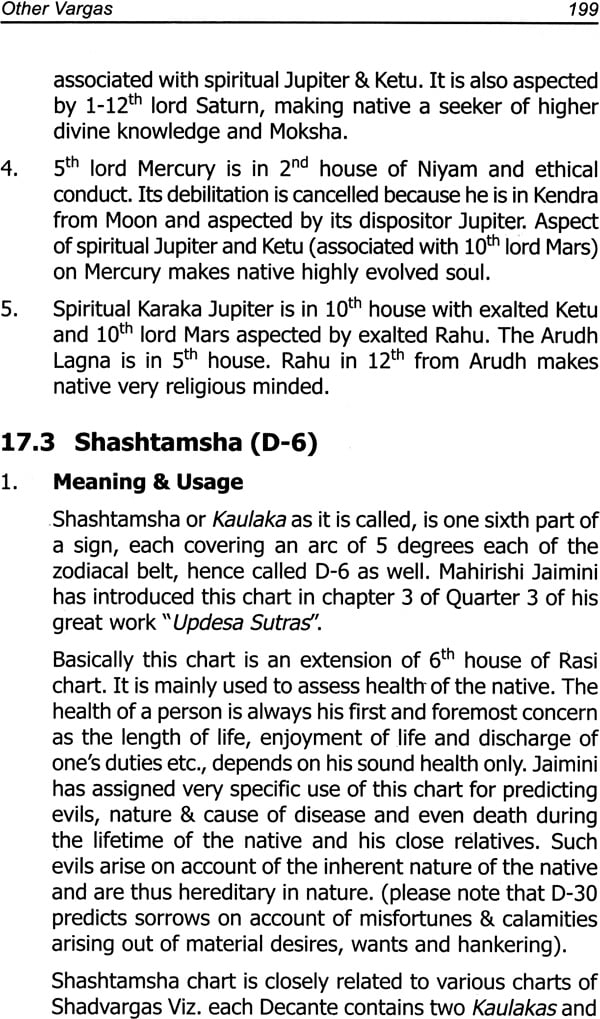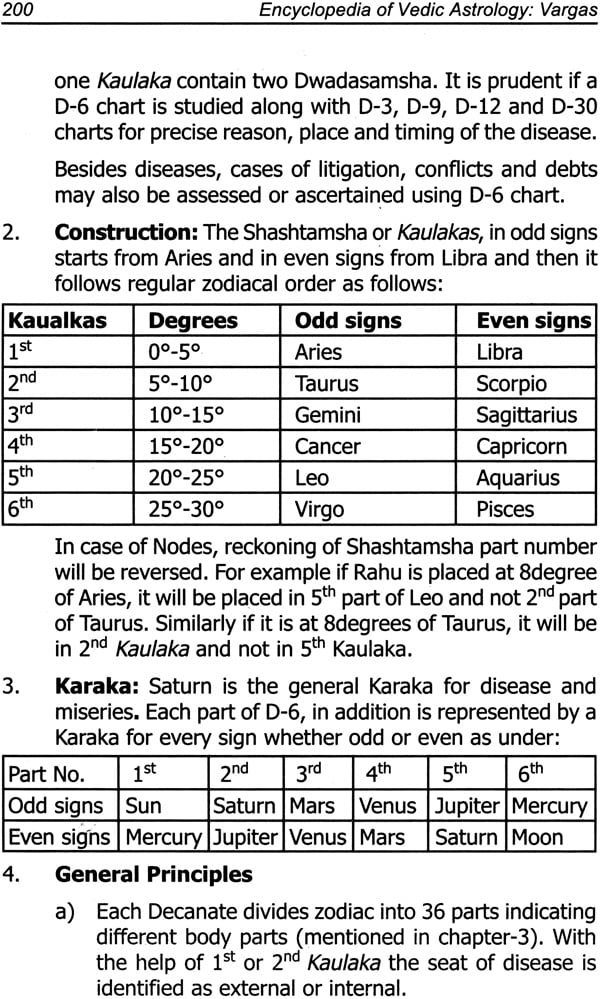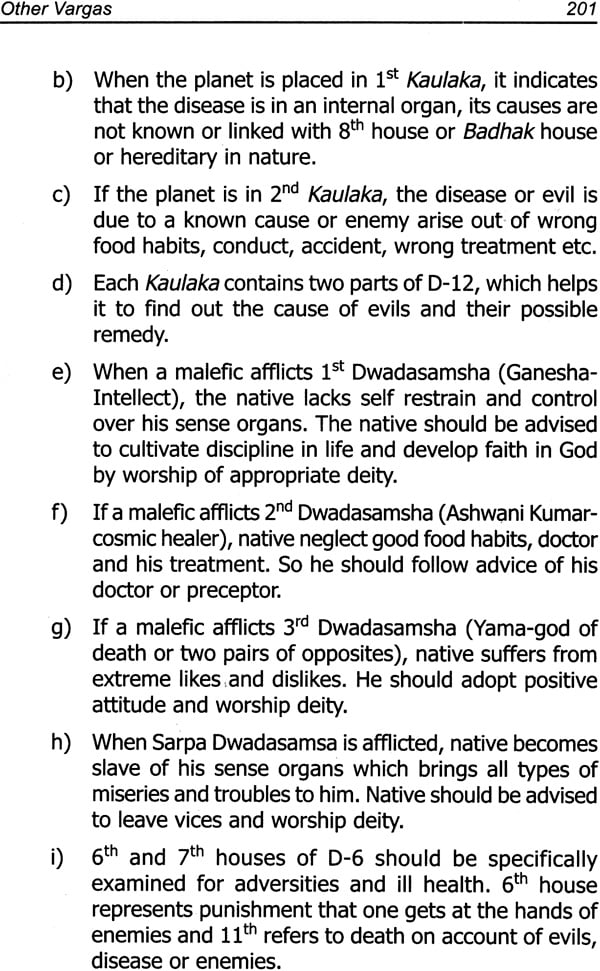
Vargas (Encyclopedia of Vedic Astrology)
Book Specification
| Item Code: | IDK805 |
| Author: | Dr. Shanker Adawal |
| Publisher: | Sagar Publications |
| Language: | English |
| Edition: | 2018 |
| ISBN: | 9788170822615 |
| Pages: | 246 |
| Cover: | Paperback |
| Other Details | 8.5 inch X 5.5 inch |
| Weight | 320 gm |
Book Description
The Vargas or the Divisional Chart is an unique way of evaluating not only the real strength of the planets but the level of auspiciousness that the planets bestows upon a native.
Without understanding and using the Divisional Charts with the Lagna chart the predictions on various aspects cannot be made. In the book the author has discussed Navamsha (D9), Dashamsha (D10) to the Shashtiamsha (D60) in details keeping in mind the predictive aspect of Astrology.
About the Author
Dr Shanker Adawal, the author, is a management professional. He has over the last thirty three years worked with various prestigious corporates in India and abroad. His experience of working with L& T, Xerox, Tata, Nortel and with a leading energy major of the country, along with a Jyotishacharya from Varanasi gives him the perfect blend of intellect and logic. The son of a bureaucrat father and an educationist mother, he is a graduate in Economics (Hons), Masters in Business Economics from Delhi University, PhD in Economics and complementing his skills with software and other leadership programs from Singapore and other countries.
His passion has been astrology, a passion that fell his way in childhood, a zeal that he picked from his father. As a child he often saw his father, a bureaucrat and an astrologer, getting admiration from many eminent astrologers, which inspired him. He used to spend long hours participating in intellectual debates that his father used to have with his friends and fellow astrologers. With thousands of books in his library, free consultations through magazines, television, portals and newspapers around the globe, he continues his journey on his passion. He has been felicitated and awarded for his contribution in this field. He also has keen interest in Human Rights.
The notion that astrologers can unfold lives and reveal what waits at the next bend is a thought that comes to all and populist claims have inspired the author to come up with a series of books that will discuss the various aspects in astrology, putting together the research and findings by various groups and the experience gained during his journey. The purpose of the encyclopedia is an attempt to put a clear understanding of the process of astrology, taking into account the first basic principles and dealing with different topics. The encyclopedia which would consist of over eighteen books, is intended to be brought out over a period of two years. These would cover the basics in astrology and then go on to the predictive techniques, the nadi astrology, tajik, yogas, nakshatras, rectification of birth time, vargas, dashas, mundane prashna, muhurta, remedy and other aspects of interest. The advantage of this would be that both students and those who want to pursue research can progress the understanding of this science in a systematic manner. Also the complete set will be of great value to those in India and abroad who want to understand various levels and will give them the flexibility of dwelling into the complexities in a coherent manner. With the growing interest to learn this science in various countries, the readers there will find this series of books very useful.
Preface
The word Vargas in Sanskrit means Division. In Jyotish this is known as Amsha.
Each Amsha is a division and influences the way a planet would behave. There are sixteen Vargas or Divisional Charts that are used in Jyotish.
The Vargas or the Divisional Chart is an unique way of evaluating not only the real strength of the planets but the level of auspiciousness that the planets bestows upon a native.
After giving an overview I have discussed in details the Divisional Charts. All the divisional charts have been explained in details with a focus on making the reader understand in a simple way the use and application of the divisional charts.
Without understanding and using the Divisional Charts with the Lagna (D1) chart the predictions on various aspects cannot be made. I have in the book discussed Navamsha (D9), Dashamsha (D10) to the Shashtiamsha (D60) in details keeping in mind the predictive aspect of Astrology.
The integrated approach to the Divisional Charts has been brought out in this book which you can apply for better results in predictions. Other aspects which we need to dwell once we have mastered the use of Divisional Charts which has been dealt briefly in the last chapter.
I as always dedicate my work to my father Late Shri K.C. Saksena who was & remains my inspiration to work on this science.
| 1 | Introduction | 1 |
| 2 | Hora (D-2) Chart | 17 |
| 3 | Decante/ Dreshkone (D-3) Chart | 27 |
| 4 | Chaturthamsha (D-4) Chart | 41 |
| 5 | Saptamsha (D-7) Chart | 49 |
| 6 | Navamsha (D-9) Chart | 62 |
| 7 | Dasamsha (D-10) Chart | 79 |
| 8 | Dwadasamsha (D-12) Chart | 90 |
| 9 | Shodasamsha (D-16) Chart | 103 |
| 10 | Vimsamsha (D-20) Chart | 112 |
| 11 | Chaturvimsamsha (D-24) Chart | 123 |
| 12 | Bhamsha (D-27) Chart | 137 |
| 13 | Trimshamsha (D-30) Chart | 146 |
| 14 | Khavedamsha (D-40) Chart | 162 |
| 15 | Akshvedamsha (D-45) Chart | 171 |
| 16 | Shashtiamsha (D-60) Chart | 180 |
| 17 | Other Vargas | 193 |
| 18 | Beyond Vargas | 223 |
